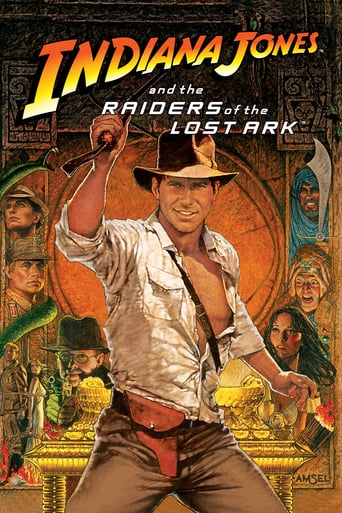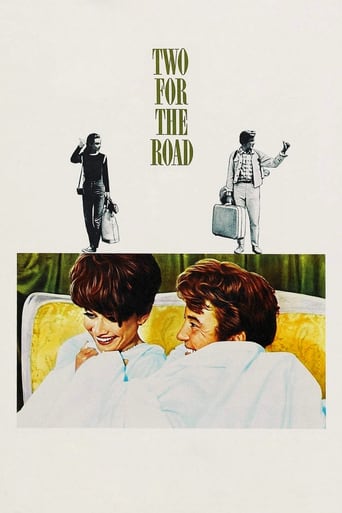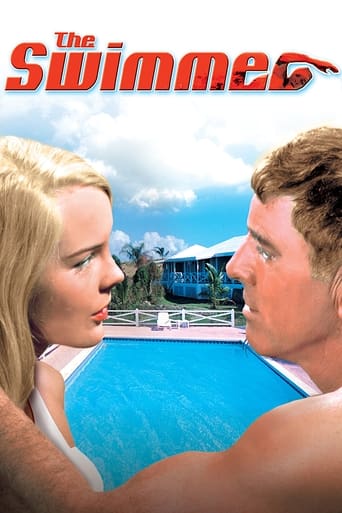


The Swimmer
Well-off ad man Ned Merrill is visiting a friend when he notices the abundance of backyard pools that populate their upscale suburb. Ned suddenly decides that he'd like to travel the eight miles back to his own home by simply swimming across every pool in town. Soon, Ned's journey becomes harrowing; at each house, he is somehow confronted with a reminder of his romantic, domestic and economic failures.
-
- Cast:
- Burt Lancaster , Janet Landgard , Janice Rule , Tony Bickley , Marge Champion , Rose Gregorio , David Garfield


Similar titles


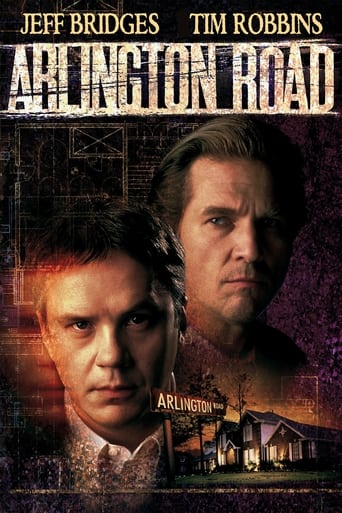


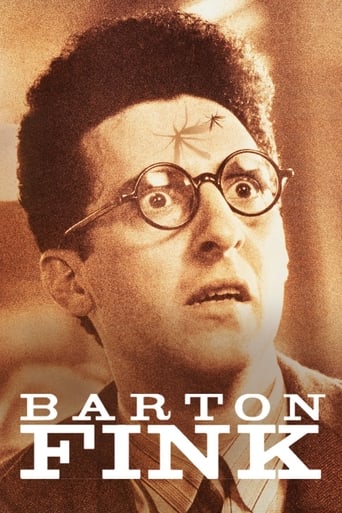



Reviews
Tells a fascinating and unsettling true story, and does so well, without pretending to have all the answers.
Ok... Let's be honest. It cannot be the best movie but is quite enjoyable. The movie has the potential to develop a great plot for future movies
It is an exhilarating, distressing, funny and profound film, with one of the more memorable film scores in years,
The film never slows down or bores, plunging from one harrowing sequence to the next.
Everyone loves an alpha male, until you realize that we are just pawns in his self-serving story. He's the lead and he needs you to make him feel important.No one has mentioned this, but we heard that this film's lead used to make fun of his financially conservative childhood friend. The alpha male mocked the nerd. Now the nerd is super successful and the alpha male has fallen from grace.Everything comes easy to the alpha male. Without some regulating code or force larger than himself, he will usually indulge. That means stepping on others, belittling them, or using them. If they have outward charm to go along with their optimistic and fearless nature, they are hard to resist. We want to be them or be with them. I like one reviewer's notion that the pools were part of a cleansing process he needed to go through before returning home. I also like the idea that an optimistic dreamer would love to create a youthful adventure like this one on a gorgeous summer day. It's invigorating. I don't resent material prosperity, nor believe that it must produce a shallow lifestyle. Some suburbanites go to church and do volunteer work. Many feed the homeless and coach Little League. Prosperity is good, full American, and worthy of celebration. We don't know for sure that the friends he encounters are all shallow. There are some nudists and one callous braggart, but the others seem ok. Even the nudists are doing charity work. Lancaster is perfect here. He exudes well-being and optimism perhaps better than any actor could when necessary, and profound confusion and regret when that's appropriate. The longing in his eyes for something....perpetual youth, first love, eternal sunshine is truly moving. The orchestration was fine by me. It was a different time period. I agree with another reviewer that the leaping scene should have been cut short.What we never come to understand is why he was barefoot and shirtless in swimming trunks, before the idea ever came to him to swim through the neighborhood. Where did his day begin, and why didn't he bring at least a small backpack with belongings?His lack of attire makes me think that it was all a dream, yet I'm thankful they didn't reveal that. I'd rather be left wondering. The moral? Watch the story of football coach Joe Paterno, or those of O.J. or Bill Cosby. Your glory days can continue until the end, unless you make one too many crucial mistakes along the way. Then they won't just stop. They will come to a violent, crashing, tragic end, and your mistakes will obliterate the memory of everything you did to attain that glory.
I liked that Burt Lancaster called The Swimmer, about a man who decides to "swim to home" across the relatively quiet upper-middle class suburbia by taking a swim in each of his neighbors swimming pools (and one rec center), "Death of a Salesman in swim trunks." I can still see the connections with the disillusionment of, and a critique by others, of the American (white) middle-class male in the promise of having it "all", but having the connection to Willy Loman and the story of falling so completely from grace and promise (and failing himself repeatedly) marks this as something special in American cinema at the time. And Burt Lancaster, in his 50's by the time he made this, is fit for the part (in more ways than one) and really gets into how this man is so happy to be doing this "adventure" as he calls it, like he's some sort of explorer. But what is he exploring? Actual places, or people's hearts and minds? A lot of this can be (or should be, or both) read as an allegory, or some kind of surrealistic dive (no pun intended) into the well-off. These people have such lavish homes and places, none of them have to worry about being without (though a little boy may be taught to value his money early on with a lemonade stand), and of course their pools and/or tennis courts. So with a story like this, adapted from a short piece of prose by John Cheever, the plot isn't really of significance. Although, to that point, it is fascinating for me in watching this how it feels like he *must* swim at each of the places he stops at, even if it's only for several seconds. And at one point when he discovers one pool that's been drained of water - the lemonade entrepreneur can't swim - he mock-swims it. Not great, but close enough.So with this extremely basic through-line we get what is more closely related to European cinema of the period: it's a mood piece, all about expressing how this man goes across the spectrum. He is jubilant, happy, accomplished, serious, focused-determined, downtrodden, sad, angry, kind of crazy, bewildered (watch out for those cars in that heavily edited walking-across-a-highway sequence!) and melancholy. The conflicts of the movie come from whether or not those he comes across will be good to him or not; it seems like, for the most part, everyone at least has some familiarity with him and at most they've even had relationships - in one woman's case, Shirley (a fantastic ten minutes for Janice Role), a former lover... on the side, as it were.If it has any closer relation than Death of a Salesman, which may have been what was most comparable at the time for Lancaster, it's Mad Men: I could have see Don in a sort of dream episode like this, where everything from masculinity to ethical codes to psychology and how men treat women and objects and possessions comes into question. And Lancaster is the one here going through these emotions, to plumb the depths to get at what this man may be all about, to excellent effect. There are moments it feels like he could become, well, affected in his delivery but it doesn't happen; he's a passionate person and comes off as such in whatever he's talking about (and it may even come close to being uneasy, like a walk and talk with a much younger woman, an ex "babysitter"). If Lancaster doesn't work than neither does the movie, in large part. I'm glad he gets to deliver here and it's certainly one of his three or four major pieces of acting in a career full of wonderful roles.If I don't quite love the movie as much as some out there - a flop on release initially it's gained a following over time (youtube Gilbert Gottfried and TCM, of all people, to see a good talk about the film) - it may be because certain little things make it awkwardly dated. When Ned is walking through the woods to go from place to place it's shot and edited to be fairly dream-like and hallucinatory, which may be fine thematically, but in how it looks today it's stuck in that 60's way of messing with lenses and filters and shots far off with actors speaking ADR that doesn't totally work for me. And there's a short scene at one of the houses where a young Joan Rivers pops up and it feels misdirected (and according to her she was).These small misgivings aside, it is a film that is lucky to get its audience over the years. It's at times strange and borderline, darkly, comical, and then by the last half hour as things get grimmer and more oppressive (and that last several minutes when he does get 'home'), it has the feeling of some fable that's gone into the realm of tragedy. We may not understand fully what Ned's gone home to, but there's some intuition that failure is at the heart of it. And maybe the river will flow for someone else some other time...
This film has more of "stage play" look to it than most films. It is a sort of odyssey of one character alone, with the other characters simply appearing in short bursts.Lancaster plays a man who is a big of a braggart, thinking he can "swim" home to the other side of town, on land, by borrowing everyone else's pools to do a lap.It's a very pompous statement that immediately sets one against his character, but along the way he shows us that he isn't really as pompous as he is simple. He really isn't a big brain, but has tasted much success. He isn't an evil character by any means, nor a hero, just a very simple man.He is as "gray" as a character can be. He doesn't want to harm anyone, and in his heart he thinks he can do good, but the fact is he is more helpless and useless than he realizes.He owes most of the people money or favors whom he visits, and doesn't seem to know how little they think of him. He's had a good life, and has had excellent health. It's hard to say he "wasted" it, because he more or less just went along life for the ride, with an attitude of live and let live.At times his pompous nature turns to a "superior" feeling, however. Not in a dangerous way, but still in a way that means he wants success at the expense of others.This isn't to defend him. Nor to attack him. He's not the man I would want to lead my work crew, but he is okay in the work crew.
"All animals are under stringent selection pressure to be as stupid as they can get away with." - Robert Boyd A cult classic, "The Swimmer" stars Burt Lancaster as Ned Merrill. Realizing that the swimming pools of his neighbours "link" to form a "river" leading to his own home, Merrill decides to "swim" across his affluent Connecticut suburb. The film was based on a 1964 short story by the renowned John Cheever. It was directed by Frank Perry.Unmistakably a product of the 1960s, "The Swimmer" initially portrays Merrill as a glorious alpha male. Tall, bronzed and beautiful, Merrill exudes confidence. Those around him are equally lavish, all upper middle-classers in possession of extraordinary wealth. Like Merrill, they're all proto-yuppies, living lives dedicated to paper, profit and pushing product. The world outside their ornate cultural bubbles don't matter. Myopia is good when you're swimming in honey."The Swimmer", though, quickly mirrors the shared delusions of the upper classes to the private delusions of Merrill. Merrill, we learn, is blocking out the last two or three years of his life. Though he's lost his wealth, friends, family, home and business, Merrill parades about as though he's king of the world ("I'm splendid!"). He also aggressively represses the fact that he's a womanising drunk and an insensitive guy who bulldozed many others during his journey up the social ladder. He is a good guy, Merrill believes. He always was and still is."If you make believe hard enough that something is true," Merrill says, "then it is true." The line encapsulates the relativism which sustains Merrill's social class. Merrill and his neighbours create their own truths, their own realities, and are oblivious to life outside their perimeter fences. In this regard, Merrill has not really "gone mad"; he's always been oblivious to reality. His life has always been built on a foundation of lies.The spiritual ancestor of David Lynch's "The Straight Story", "The Swimmer" becomes increasingly surreal as it progresses. Timelines blur, characters step out of the past, and the film eventually reveals itself to be a four-way journey; not only Merrill's literal journey from pool to pool, but Merrill's symbolic journeys from the top of the social ladder to the bottom, from boyhood to adulthood and from blissful naivety to painful realisation."The Swimmer" ends with two powerful scenes. In the first, Merrill finds himself lost in a "lowly" public pool which ironically counterpoints the immaculate private pools seen during the film's first half ("Filters out ninety nine point ninety nine point ninety nine percent of all solid matter in the water!"). In this pool, surrounded by hordes of churning bodies, Merrill's now anonymous, a nobody, cast out with the very social dregs he's spent his life patronising. The following scene finds Merrill arriving at his home. His own Dorian Gray portrait, the building's dilapidated and marred with mud and grime."The Swimmer" is slow and dated in many places. For those willing to forgive its "flaws", though, this is an original and very influential picture which captures well a certain zeitgeist. And like the short stories of Raymond Carver, and of course Cheever himself, it is preoccupied with domesticated Americans, all struggling to find substance, value and meaning within the mores and rituals inculcated by post-war America.8/10 – See "Everything Must Go", "Goodbye, Columbus", "Ghost World", "Deep End" (1970) and "The Yellow Handkerchief".






